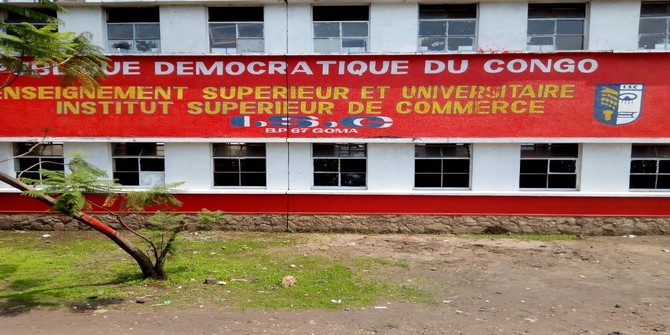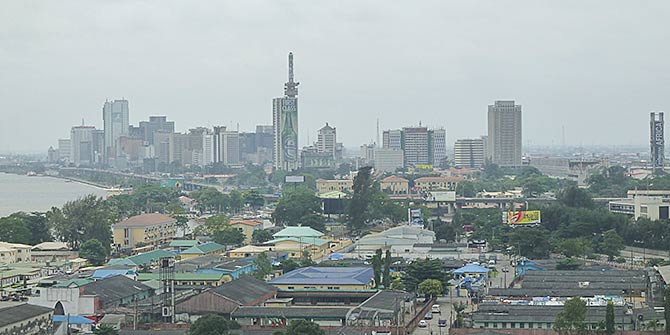Susan Lado analyses the current debate around overcoming poverty and inequality in South Africa, drawing on a recent public lecture delivered at University of the Witwatersrand by Dr Precious Zikhali of the World Bank.
During a ‘Brown Bag’ lecture on overcoming poverty and inequality in South Africa, held at the University of the Witwatersrand, Poverty Economist at the World Bank – Dr Precious Zikhali – assessed the drivers, constraints and opportunities to overcoming poverty and inequality in South Africa as highlighted in the World Bank’s latest Report for South Africa.
In South Africa, while national social interventions such as broad-based economic empowerment for instance and social grants have proven effective for social mobility they have heightened inequalities of wealth. As a function of this, intergenerational mobility remains low, and stands as a vacuous obstacle to the reduction of inequality. In such circumstances, the report highlights correlations between education and labour market affiliation as primarily responsible for overall inequality. In this sense, there is a structural mismatch between labour market demand and supply for skilled workers. Dr Zikahli highlighted how there is significant statistical evidence to suggest that the reduction of inequality is accelerated through labour supply interventions, within the political economy of development.
While this view seems logically plausible, a related emergent idea within the inequality literature is that inequality is intrinsically good for growth. How is this so? In 2016, The Organisation for Economic Development (OECD) argued that unequal distribution of wealth and income has proved conducive to the onset of growth. In this sense, higher savings or investment rates by the wealthy increases the capacity to mobilise large amounts of capital. Economists at the OECD favour the view that major capital deepening or the inception of new capital-generating technologies are necessary and suitable for long-term growth. On the other hand, some economists argue that inequality is merely a necessary by-product of growth distributions within society. In this sense, higher initial economic inequality is associated with higher current income – and not lower. Melissa Dell has argued that large landowners in Peru and Bolivia were more powerful and more effective in securing public goods from the central government, leading to better long-term outcomes in the regions that had goods that are more public. While these arguments all seem well and good, they do not account for the contextual variations that present themselves in different regions. Instead, they prompt us to reflect even deeper about the generalisation of poverty and inequality trends and their relation to National Evaluation Systems (NESs) in contributing to effective developmental change.

Notwithstanding, although there are different arguments, there is statistical value to the topic of inequality, but this does not imply that it is somehow uncontroversial. The World Bank Inequality Report for South Africa, presented a snapshot view of the socioeconomic degeneracy that presents itself in society. It is widely known that the most unequal societies produce conducive societal conditions that yield externally precarious effects such as violence and crime – in this sense, it comes as no surprise that South Africa is held as one of the most violent and unequal societies in the world today. I believe that existing pro-poor policy arrangements ought to be complemented by requisite social contract arrangements that guarantee a ‘fair’ and ‘just’ life for all.
Although the lecture introduced key concepts in much of the poverty debate, it held space for arguments that were very minimalistic/diminutive in nature. For one, there was an explicit omission of the national land equality debate; the report emphasised inequality of resources and services, only leaving out critical arguments around urban bias and rural development. Further to its detriment, the Report focussed heavily on consumption inequality to show significant correlations between wage and wealth inequality. It is in this regard that inequality of opportunity is deduced as being high; suggesting that there are inequitable windows of opportunity for the chronic poor. All things considered, as we approach the end of the second decade of the 21st century, our National Evaluation Systems (NES) are mature and tools of evaluation ubiquitous. I therefore believe that there is an acute need for the development of national evaluation capacities that prioritise long-term socioeconomic growth and the development of Sen-inspired human capabilities in order to ascertain development as freedom – lest we leave equality behind.
Susan Lado is a development economics professional with the University of the Witwatersrand, specialising in Monitoring and Evaluation (M&E) as well as an LSE PfAL alumna.
The views expressed in this post are those of the author and in no way reflect those of the Africa at LSE blog, the Firoz Lalji Centre for Africa or the London School of Economics and Political Science.





